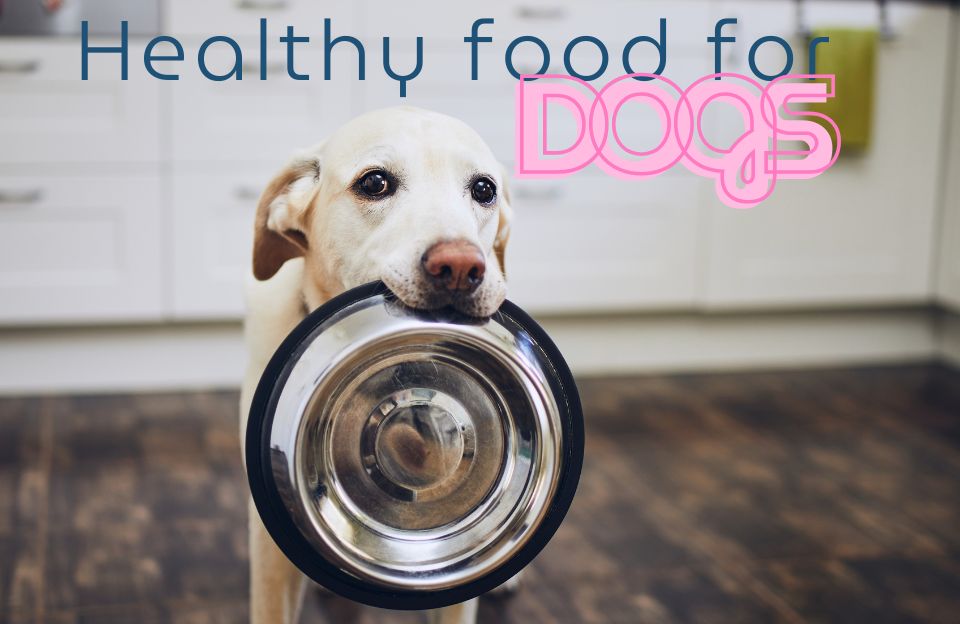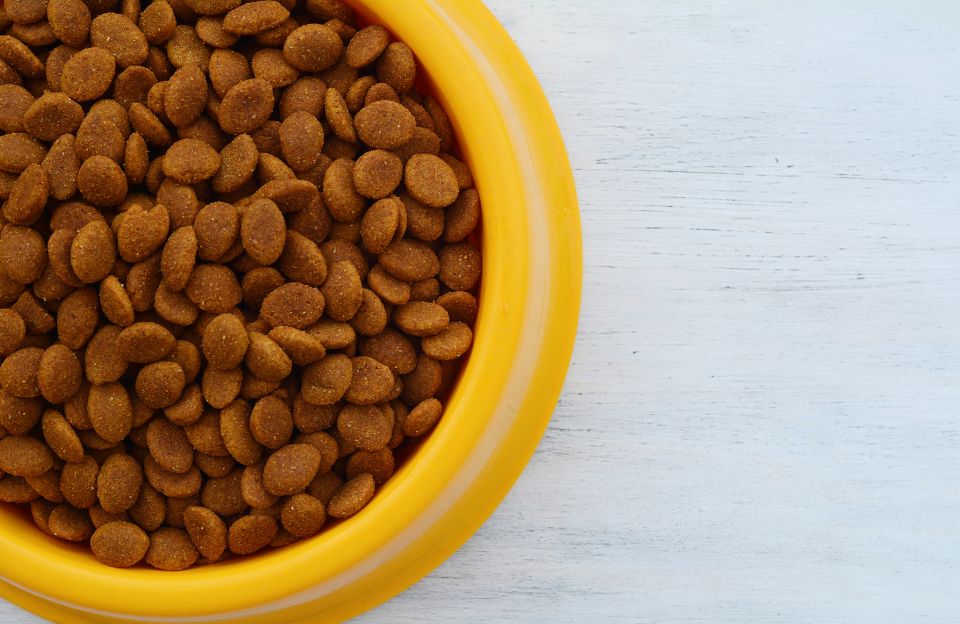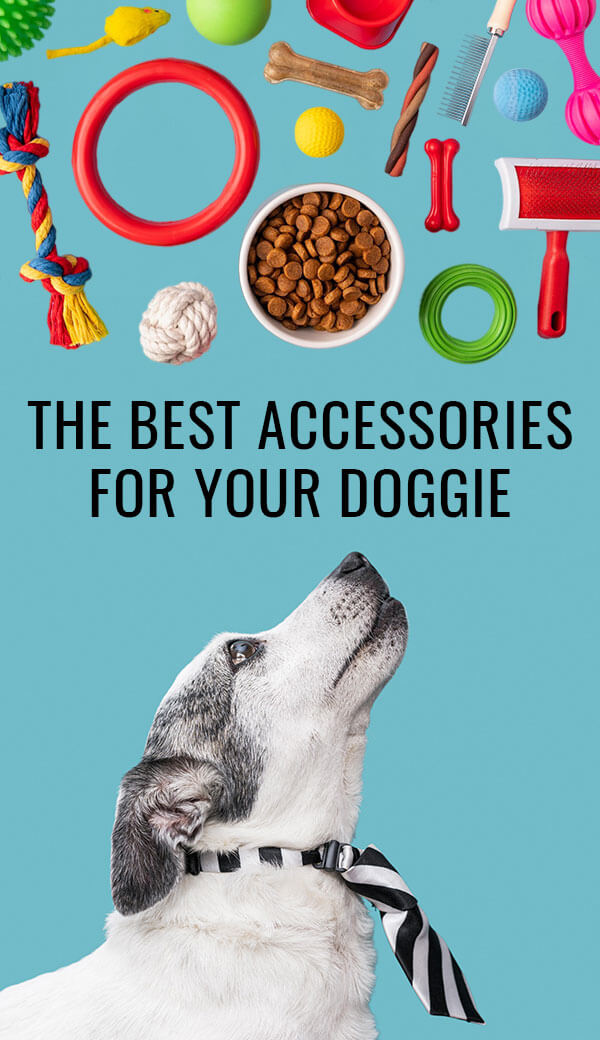I’m a passionate dog lover, owner of several furry friends, and a veterinarian with years of experience. I understand how important it is for you to ensure your four-legged companion is healthy and happy. One of the biggest dilemmas I face as both a pet owner and a professional is the issue of diet. Is dry dog food bad for dogs? In this article, I’ll share everything I’ve learned over the years about this topic, so you can make the best decision for your dog.
The Composition of Dry Dog Food: What’s on Your Dog’s Plate?
Dry dog food, or kibble, is the most common choice among dog owners. It’s convenient, has a long shelf life, and is generally more affordable. But does that mean it’s the best option for every dog?
Ingredients and Essential Nutrients
As a veterinarian and owner, I always take a close look at the ingredient list of the dog food I buy. Quality dry dog food should list animal protein as the first ingredient. This is because proteins are crucial for maintaining muscle, tissue, and overall health in your dog.
- Proteins: Prefer foods that list meat or fish as the first ingredient. This ensures your dog is getting high-quality protein.
- Carbohydrates: Dogs don’t need as many carbohydrates as humans do, but they are present in food to provide energy. Choose foods with whole grains like rice or oats and avoid those that use corn or soy as the main sources of carbohydrates.
- Fats: Fats are essential for your dog’s skin and coat health. Quality dry dog foods include good sources of fat, such as fish oil or flaxseed.
- Vitamins and Minerals: Dry dog food is formulated to include all the vitamins and minerals necessary for your dog’s health, but the bioavailability of these nutrients can vary.
The Impact of Manufacturing Processes
One thing many people don’t know is that dry dog food goes through a manufacturing process that can reduce the nutritional value of the ingredients. The high heat used in production can degrade some vitamins and alter the structure of proteins, which may impact how well your dog’s body absorbs these nutrients.
Benefits of Dry Dog Food: Why Many Owners Choose This Option
Even with the concerns mentioned, there’s no denying that dry dog food has its benefits. As the owner of multiple dogs, I understand the convenience it offers.
Convenience and Cost-Effectiveness
Dry dog food is easy to store, doesn’t require refrigeration, and is simple to serve. Additionally, if you have more than one dog, like I do, you know that cost is an important factor. Dry dog foods are generally more affordable than wet foods or natural diets.
Dental Health Benefits
Another advantage I often highlight to the pet owners I see in the clinic is the potential benefit for dental health. The crunchy texture of dry dog food can help reduce plaque and tartar buildup on your dog’s teeth. However, this does not replace the importance of proper oral hygiene, such as regular brushing and professional cleanings.
Disadvantages of Dry Dog Food: What You Need to Watch Out For
Even though it’s a convenient option, dry dog food has its drawbacks, and as a veterinarian, I think it’s important for every owner to be aware of them.
Low Moisture Content
One of the biggest problems with dry dog food is its low moisture content. While wet food can have up to 80% water, dry food usually contains only about 10%. This can be an issue, especially if your dog doesn’t drink enough water. Dogs that eat exclusively dry food may be more prone to urinary and kidney problems, especially as they age.
Quality of Ingredients
Unfortunately, not all dry dog foods are of good quality. Many popular brands use by-products, artificial colorings, and chemical preservatives that can be harmful to your dog’s health in the long term. I always recommend owners carefully read labels and choose brands that use natural, high-quality ingredients.
Risk of Weight Gain
Another point to consider is that dry dog food is quite calorie-dense and easy to overfeed. Dogs that consume dry food without control can gain weight quickly, leading to health problems like diabetes, joint issues, and heart disease. It’s crucial to follow feeding guidelines based on your dog’s weight and activity level.
How to Choose the Best Dry Dog Food for Your Dog
As someone who deals with dog health every day, I believe that choosing dog food should be done on a personalized basis, considering each dog’s specific needs.
Puppies and Growing Dogs
Puppies have different nutritional needs than adult dogs. They need more protein, calories, and nutrients to support their growth and development. I always recommend specially formulated puppy food, which is rich in the right proteins and calories for this stage.
Adult Dogs
For adult dogs, the focus should be on maintaining a balanced diet that supports overall health. The amount of calories and nutrient ratio should be adjusted according to the dog’s activity level. If your dog is more sedentary, a lower-calorie food may help prevent weight gain.
Senior Dogs
Senior dogs have special nutritional needs. They may need fewer calories but more fiber to aid digestion, and nutrients that support joint health, like glucosamine. As the owner of older dogs, I can say that choosing food formulated for older dogs makes a big difference in their quality of life.
A Passionate Veterinarian’s Perspective: Is Dry Dog Food the Best Option?
In my experience as a veterinarian and a passionate dog owner, I believe that dry dog food can be a good option for many dogs, as long as it’s chosen carefully. The most important thing is to know your dog’s specific needs and ensure they receive a balanced diet, whether with dry food, wet food, or a combination of both.
Adding Variety to the Diet
One thing I always recommend is varying the diet. Even if your dog regularly eats dry food, adding fresh foods like lean meat, vegetables, and fruits can provide additional nutrients and make the meal more interesting for them. Additionally, a varied diet can help prevent nutritional deficiencies and improve your dog’s overall health.
What Really Matters in Your Dog’s Diet
So, is dry dog food bad for dogs? It depends. Dry dog food isn’t necessarily harmful, but it needs to be of good quality and suitable for your dog’s needs. As an owner, trainer, and veterinarian, I believe the most important thing is to choose a diet that is healthy, balanced, and keeps your dog happy and in good shape.
Thank you for making it to the end, and I hope this article was helpful to you. Feel free to explore more content on our blog, DoggiesJoy.com, where you’ll find more tips and information on taking great care of your best friend. After all, they deserve all our love and care!









